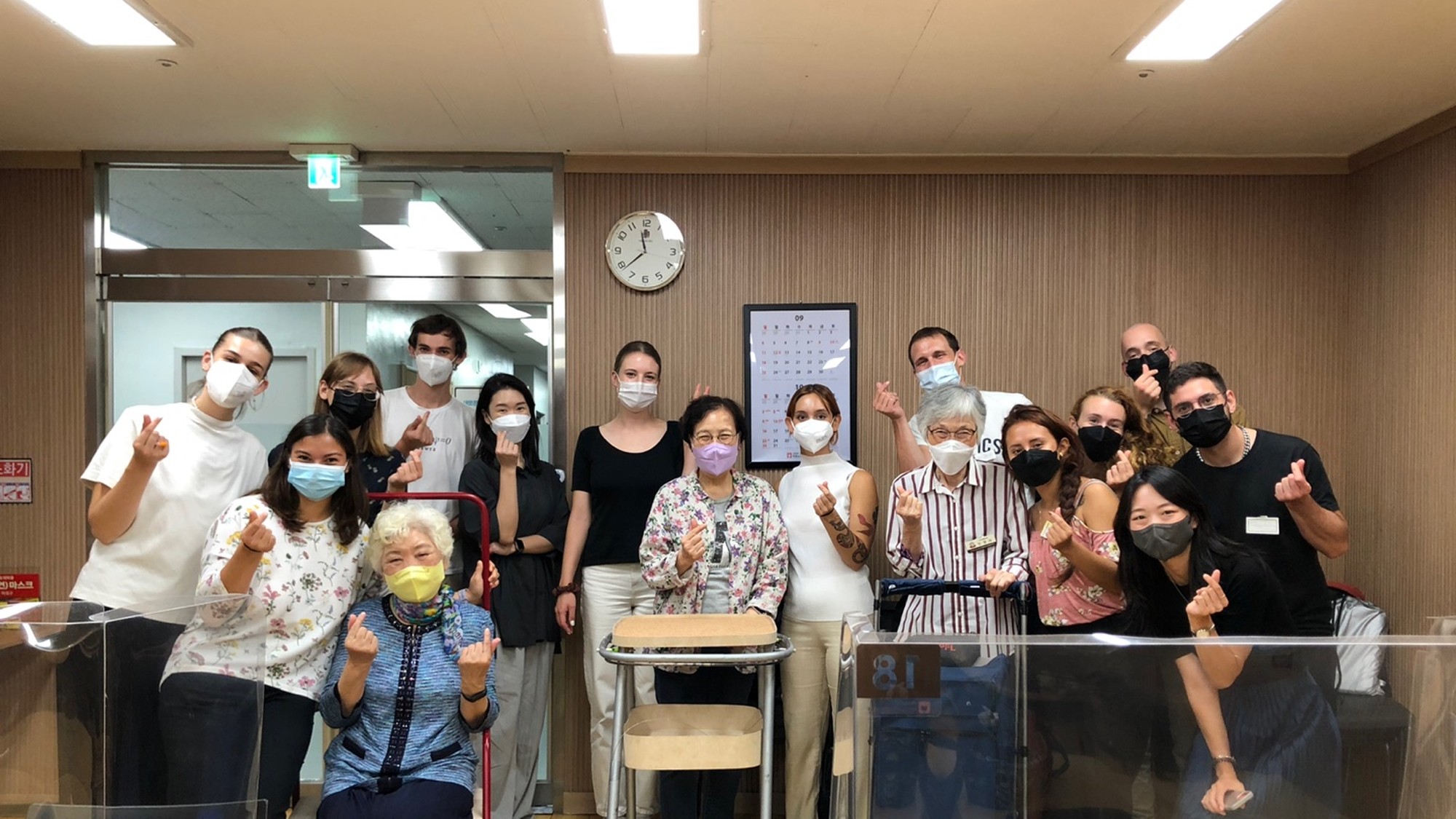
Connecting generations through cross-cultural innovation
Switzerland and South Korea share a common challenge in their aging societies. However, the problems created by increasingly elderly populations and decreasing birth rates do not appear to be as much of a concern for younger generations as they do for experts and policymakers.
With the help of cross-border initiatives and interdisciplinary input, our team in Seoul had an invaluable opportunity to confront students with the issues facing an aging society, hoping to inspire them to develop innovative and inclusive solutions for elderly populations. The name chosen for the program was KimCheese, a combination of the words ‘kimchi’ and ‘cheese’: two traditional ingredients so different in color, texture and flavor that represent Korean and Swiss culinary traditions.
In addition to developing, prototyping, and testing sustainable solutions, the KimCheese program drew on know-how from other sources. Their work to aid older people benefited from expertise in engineering and gerontology from EPFL and KAIST, together with service and industrial design from Hongik University and ECAL.
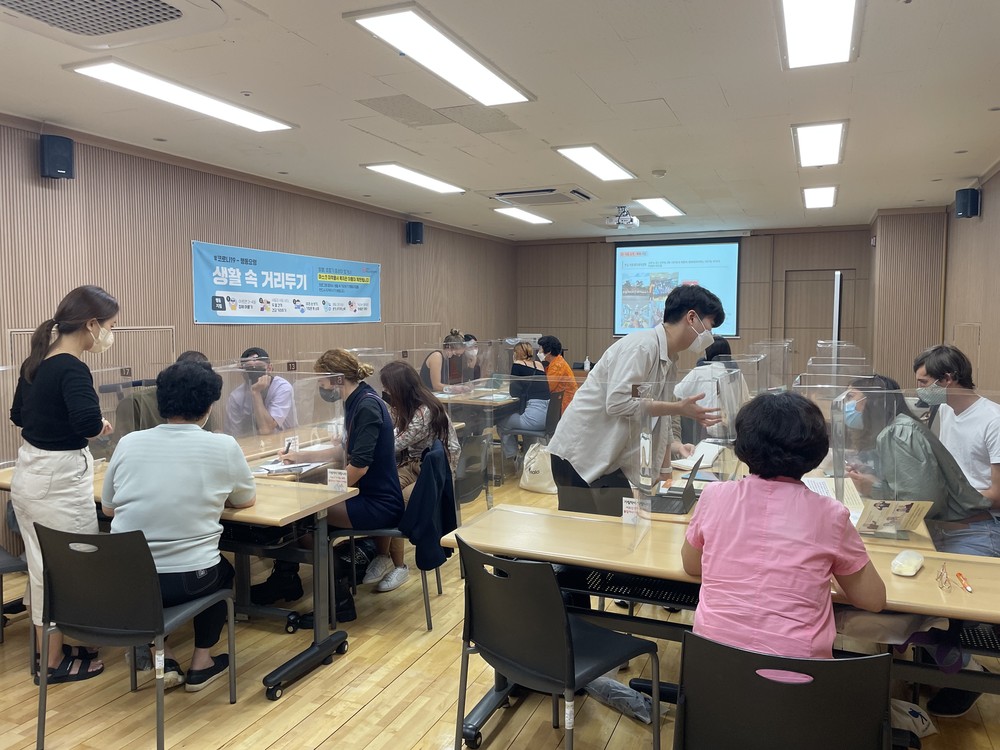
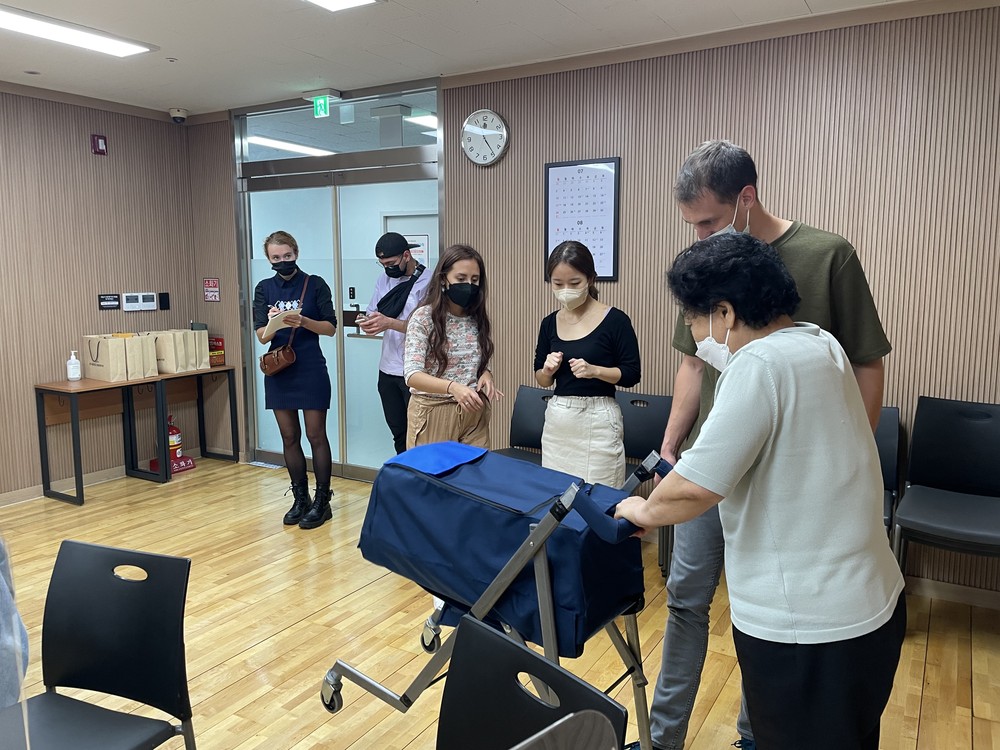
Some student teams focused on designing objects, such as a wheeled food service trolley, a hybrid grocery bag-shopping cart, and a Montessori-style stepladder/chair combination, to enhance accessibility and independence for senior users. Others built systems to help the elderly feel more connected to their community. Their choices were based on observation and reflected different habits in the two countries. “My involvement with other people on the program showed me how we can apply inclusive interaction and service design to an aging society,” said Alim Shin, an industrial design student at Hongik University who worked on the Sooda project.
The cross-cultural dimension arose when students were asked how their solutions would work in different cultural contexts. EPFL robotics student Kilian Scheiwiller, who worked on the shopping trolley, observed: “Small and unexpected differences, such as the fact that Korean pavements require bigger wheels, can have huge impacts on international designs.”
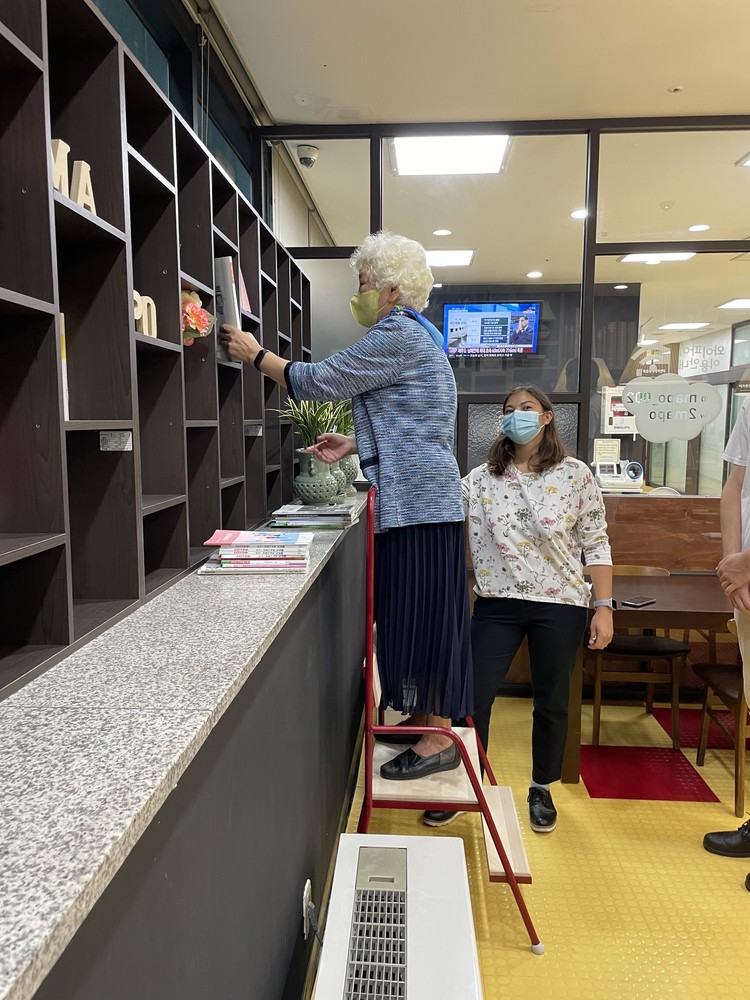
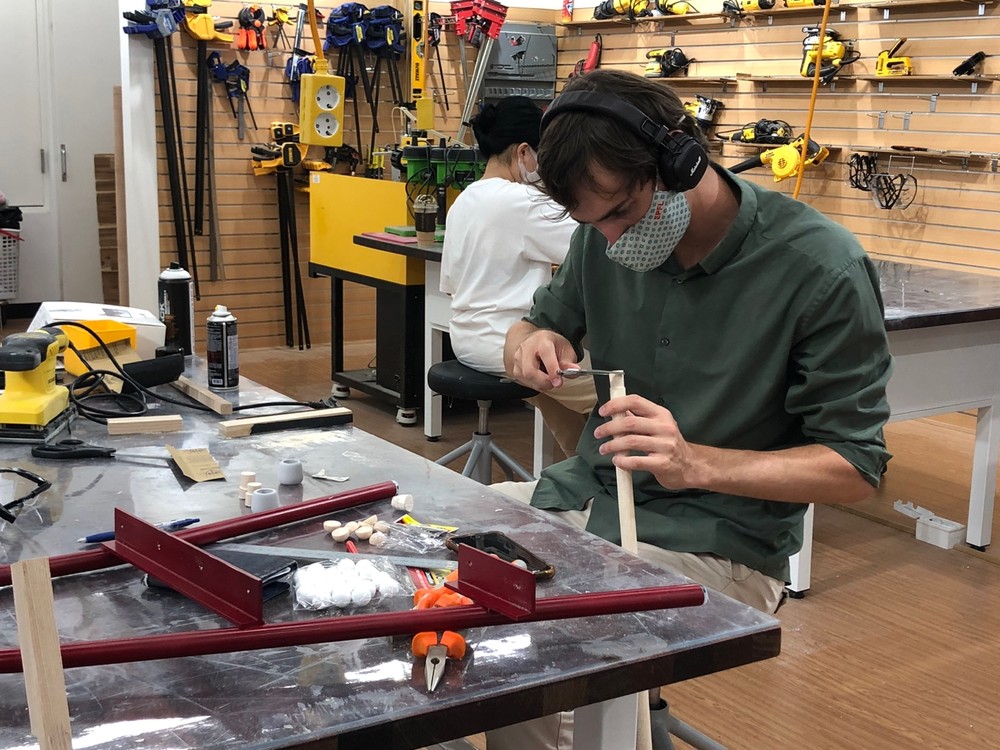
KimCheese is the fruit of collective efforts towards a more inclusive society. Getting out of the classroom and connecting with the local elderly community was initially a challenge for the students. They had to overcome language barriers and digest the – not always positive – feedback about their ideas. However, both the journey and the results made the project unique and helped establish what we hope will be long-lasting cooperation between the Swiss and Korean academic partners.
Click here for more information about projects in 2022.